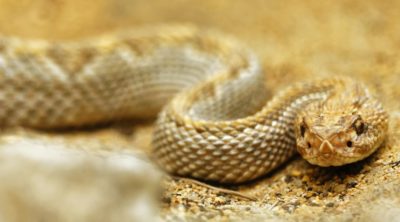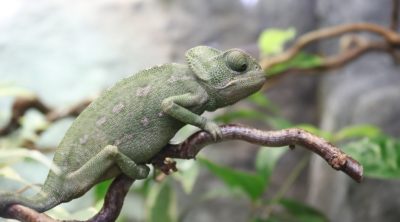
Bearded dragons have become quite popular as pets, even among children. However, many are still confused about whether these lizards can bite and about how dangerous they can be. This article provides some information on the same.
Generally, bearded dragons do not become aggressive. They do not attack even on being threatened. Instead of attacking, they just freeze, fluff their throat, and change color. Sometimes, they just prefer to run away.
A bearded dragon is actually a lizard, small to medium in size, having a well-muscled flat body. They belong to the genus of reptiles Pogona in the family Agamidae. This genus contains eight species, which are mostly referred to by the common name ‘bearded dragon’. However, the Central Bearded Dragon (scientific name: Pogona Vitticeps) is most referred to by this name and is also the most popular among others. In captivity, these lizards can live as long as 12 to 14 years.
Bearded dragons as pets
They are native to Australia, naturally and more commonly found in the desert regions. Introduced to the U. S. in the 1990s, they have gained popularity since then, mainly as pets. They have also become quite popular as pets among children. They are preferred as pets due to various reasons. They are gentle and quiet in nature, they are easy to take care of or manage, and they enjoy being handled. It is also quite safe to keep them as pets, mainly as they never attack or harm their owner. If at all they get aggressive, it is usually while hunting for food or with other animals.
When can they attack?
At times, when they are extremely stressed out or threatened, and in such cases, if they feel provoked, they may become aggressive. As a result of this, they may tend to attack or bite. This happens in very rare cases. Sometimes (mostly in case of pets), they tend to associate your finger with food and may bite your finger thinking of it as food.
What should you do?
In case you are bitten by a bearded dragon, remember to stay calm. Do not raise your hand instantly as the lizard may still remain on it and wriggle, which could make it worse. Instead, calmly support the lizard and using your free hand, gently move its jaws apart.
What could their bite cause?
Their bites may result in swelling and profuse bleeding, however, there would be no persistent or serious long-term consequences or side effects of any kind. Its bite may even hurt at times, however, the pain is nothing in comparison to that of a dog or a cat bite. Rather a scratch by a bearded dragon could result in a bigger wound as compared to its bite.
Are they poisonous?
Studies have revealed that bearded dragons produce venom. However, it is mild and harmless to humans and most other animals. Furthermore, it is believed that this venom may have been used by their ancestors in the past while hunting. On being bitten, there is no need to worry about getting poisoned. Moreover, it is said that the venom of some of their species like that of the Mexican bearded dragon has been used in the medical field. For example, it has been used in drugs for the control of diabetes. Studies also reveal that the presence of three new amino acids in lizard toxins can be used to treat heart diseases.
Risk of intestinal problems
Even though there is nothing to worry about on being bitten by a bearded dragon, there is one risk that may be a cause of concern. A bearded dragon’s mouth is known to carry salmonella bacteria that may be transferred to humans on being bitten. This may lead to serious intestinal problems. Thus, in such cases, it becomes necessary to scrub your hands with hot water and use an anti-bacterial soap before and after you have handled the lizard in order to avoid infection. In this case, you may even require a tetanus shot, if you have not taken it in the past 5 years.
Signs that they may bite
Recognizing the aggressive behavior of these lizards might prove beneficial to avoid such bites. Some signs include fluffing up of their throat and changing to a darker color tone, or a hissing sound. These are just some signs that have been commonly observed in aggressive lizards. On observation of such signs, it is better that you don’t disturb the lizard. If you notice the signs, while handling, gently place the lizard back into its habitat. It is said that in case of pets, handling them in spite of such aggressive signs may strengthen the bond between you and your pet, however, you need to wear gloves (gardening gloves) for protection.
We can conclude that although a bearded dragon’s bite is not dangerous, it does require attention and minor treatment.

